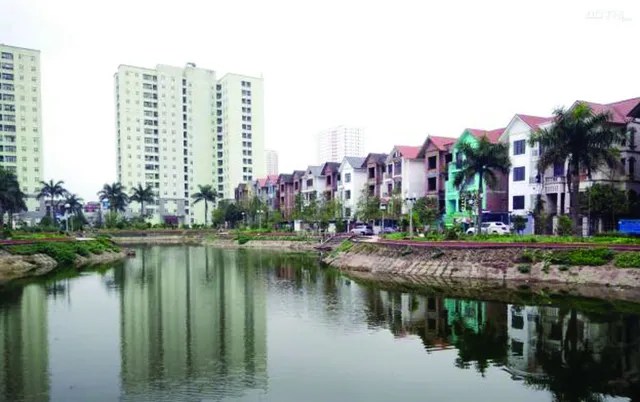The supply of apartments is tending to move to the suburbs of big cities.(Photo: Cau Buu new urban area, Thanh Tri, Hanoi)
The new supply of the apartment segment recorded an increase of 78% compared to the same period in 2021. Meanwhile, the new supply of the townhouses / resort shophouses and the accumulated resort villas in the first 5 months of the year increased respectively. 170% and 25% over the same period last year.
Limited demand
Although the new supply increased, it was not evenly distributed, but concentrated in the next stages of a few large-scale projects. The primary selling price level was pushed up due to the pressure from the escalating input costs while the secondary price and liquidity did not fluctuate much.
Bonds and leveraged bank loans are the two main mobilizing channels for real estate investors and projects. In the current context when these two channels are tightened, a number of developments may occur in the market such as: Indirectly affecting new supply to the market to decline; Impact on market demand because buyers have limited access to loans; The selling price was pushed up because the investor had to access many loan sources with high cost; Lack of diversity of segments because the project is mostly located in the high-end segment with high selling prices.
Risk warning
Forecasting some possible risks for the market in the second half of 2022 and early 2023, such as:
Firstly, the move to tighten bond issuance and real estate credit is likely to continue to be maintained.
Second, the cost of construction materials is forecast to continue to escalate.
Third, some political turmoil in the world affects the global economy.
Fourth, the risk of inflation is high in the world and unpredictable in Vietnam.
Fifth, the primary selling price continuously increased, beyond the ability of a large number of buyers with real housing needs.
According to some statistics, real estate prices in certain segments and areas are currently 20-25 times higher than people’s income and this number is likely to continue to increase in the near future.
From a business perspective, investors are likely to face many difficulties related to arranging capital and mobilizing resources to develop projects. Thereby, affecting the implementation progress, missing certain market opportunities or forcing them to approach other mobilization channels in the capital market with higher costs, the risk of “eroding” corporate profits.
Faced with the above difficulties and challenges, businesses will need to have flexible improvisations to adapt to the current market conditions, such as: Diversifying capital mobilization channels, especially capital from domestic and foreign investment funds (Japan, Korea, Singapore…) with reasonable interest rates. Prepare M&A plans, join hands with other investors to cooperate in project development. Focus resources on projects that have completed legal, avoid spreading investment, prolong the implementation schedule.
Source: CafeF
Source: Vietnam Insider

